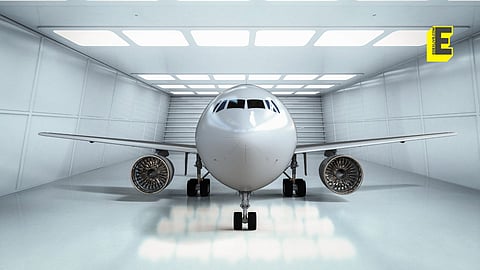Aerospace Engineering: Contribution of youngsters and start-ups; future trends
Aerospace start-ups and educational institutes are making significant strides in launching satellites and developing defence technology, a fact also recognised by Prime Minister Narendra Modi.
What roles can young people and start-ups play in advancing the aerospace field?
Youngsters and start-ups can play a significant role in the aerospace field by:
Innovating new technologies: Bringing fresh ideas and perspectives to tackle complex aerospace challenges.
Agile and rapid prototyping.
Introducing novel business models, such as satellite constellations and space tourism.
Working together with industry, academia, and government to drive innovation.
Attracting and training the next generation of aerospace professionals.
Leveraging advancements in AI, robotics, and materials science to develop cutting-edge aerospace solutions.
Cost-effective solutions:
Rapid Response to Emerging Threat
Enhancing India's Global Competitiveness
By embracing innovation, collaboration, and entrepreneurship, youngsters and start-ups can drive growth and advancements in the aerospace field, aligning with PM Modi’s vision for a self-reliant and technologically advanced India.
Tell us more about the aerospace sector.
Aerospace engineering increasingly involves collaborations with fields like materials science, computer science and electronics.
The aerospace industry is shifting towards sustainable practices, such as green propulsion systems and eco-friendly materials.
International collaborations and standardised regulations will play a crucial role in advancing aerospace technologies.
Outreach programmes, education, and public engagement are essential for attracting diverse talent and fostering a passion for aerospace engineering.
The field must stay agile and responsive to advancements in artificial intelligence, robotics, and other cutting-edge technologies.
Aerospace engineering can contribute to solving pressing global issues, such as climate change, natural disasters, and resource management.
By acknowledging these factors, we can gain a more comprehensive understanding of the aerospace engineering field and its vast scope for innovation and growth.
What about the involvement of private sector as well as predictions for the future?
Private sector involvement in space exploration and development is transforming the aerospace landscape.
Workforce development and diversity where the industry must prioritise diversity, equity, and inclusion to tap into a broader talent pool and foster innovation.
As aerospace technologies advance, it’s crucial to consider ethical implications, such as privacy, security, and environmental impact.
The rapidly evolving nature of aerospace engineering demands a commitment to lifelong learning and skill updates.


